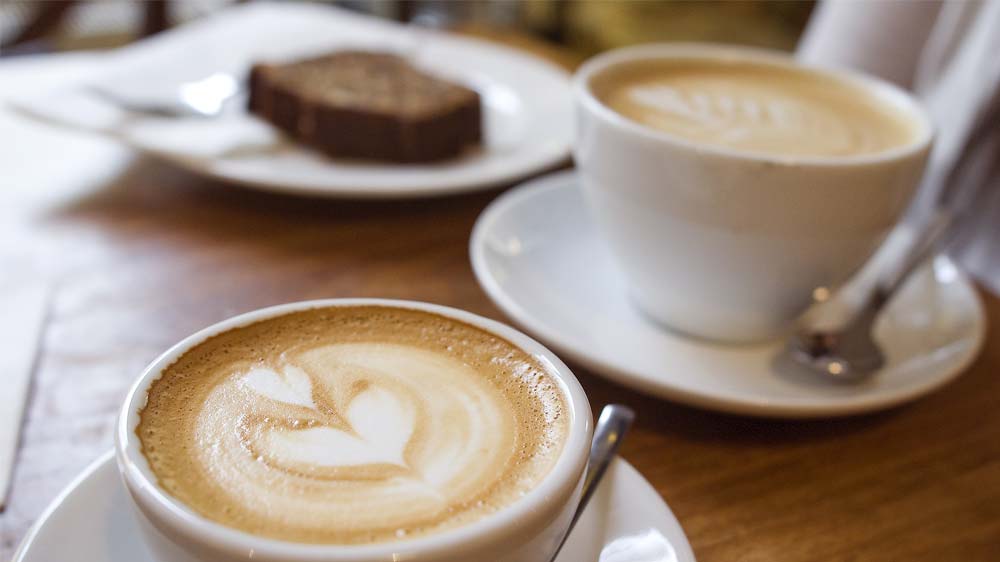
Indian coffee industry is witnessing an interesting phase where there are instances of shutting down doors of non-profitable coffee chains on one side and on the other side few are experiencing exponential growth. In this paradox situation, what home brands are doing to make business sustainable? Let’s take a closer look!
Market Approach
Indian coffee market which is growing at 17 per cent annually is outpacing the overall QSR segment. Customers are today flocking to coffee shops since the concept of coffee and snacks between meals is growing in India. Major international players like Starbucks Coffee which entered Indian market in partnership with Tata Beverages and Costa Coffee, operated by Ravi Jaipuria led Devyani International, is facing stiff competition from the home grown players like Cafe Coffee Day, Mocha, Indian Coffee House and Leo Coffee. Not only this, major international coffee chains like Barista, Lavazza, Gloria Jean’s Coffee and Di Bella Coffee are facing set-back in operations after re-entering the Indian market.
There are three major obstacles for international coffee retailing in India. First, real estate in India, especially in metros and Tier I cities, has become a big challenge. Second, hiring and retention of competent manpower is an issue and third, there is relatively slow pace of growth in the sector as compared to other segments.
“Traditionally, we consume over 15-20 per cent of what we produce but that gap is growing, the production and the consumption are increasing and we are now close to 25-35 per cent of consumption,” says Anil Bhandari, President, India Coffee Trust.
Local vs. Global
Over the last one year, local players like Cafe Coffee Day, Mocha and Leo Coffee are aggressively expanding their footprints in India. However, major brands like Costa Coffee and Gloria Jean’s Coffee have to either shutdown their outlets or have change their location due to the problems of high rentals and high price points as Indian consumers (middle class people or young Indian crowds) are highly price sensitive.
At the same time, Cafe Coffee Day is youth or consumer preference centric brand committed to bring a world-class coffee experience and customer service. The brand has a core team of F&B experts, food technologists, and trainers who ensure that the chain remains relevant and trendsetter. It is ensured that there is something new and exciting on offer at regular intervals.
“Competition does not influence our growth strategy. At CCD, we understand the importance of ‘listening’ to the youth. So the idea is to first expand our digital footprint and then listen, understand and engage with the youth and thus evolve with them. For example, CCD has co-created its existing look and feel based on our consumer feedback. A few items in the menu have been introduced after engaging with the youth in these spaces and understanding their wants and desires,” says, Venu Madhav, COO, CCD.
On the other hand, Leo Coffee, operated by Venu Srinivasan, is nearly half-century-old filter coffee brand based out of Chennai. The firm exports coffee to big domestic and international companies. The coffee major has a strong foothold in countries like the US, Australia, Singapore, Malaysia and West Asian countries. Leo exports at least a tonne of roasted coffee beans and powder every month to the US alone. “Genuine coffee drinkers prefer filter coffee to instant ones and now drinking filter coffee is fashionable,” says Srinivasan.
Leo Coffee has 40 company-owned outlets and 200 shop-in-shop counters in supermarkets and department stores across Chennai. The group has also established the brand’s presence in e-commerce portals like Amazon, Snapdeal, eBay and Shopclues.
Not only this, the brand has recently entered into the cafe segment by opening Mylapore Mocha. “We want to mark our presence in that space too. As of now, it has half-a-dozen outlets. These outlets are not very elaborate like other Café chains. We wanted them to be small joints where people can just enjoy a cuppa,” he added.
This shows that global brands are really facing a challenge in competing with the national players in order to gain significant market share in India.
Copyright © 2009 - 2024 Restaurant India.









